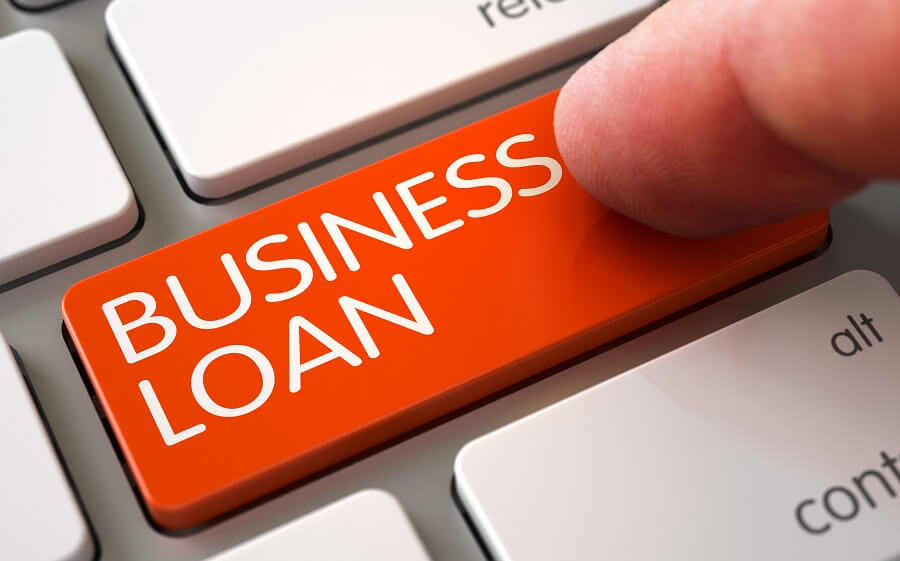
If you are a small business owner looking to scale your operations, secured business finance would be the best way to get the funding you need. All you need is an asset you can put up as collateral to secure the loan, and plenty of lenders will be more than happy to finance you.
What happens if you don’t own an asset? Is there anything else you can use as security for a loan?
The short answer is – yes, there is. A cash secured business loan is a viable option for businesses looking for cash to grow, especially those with little to no credit history.
What is a cash secured business loan, and how does it work? Here’s everything you need to know.
Get started onlineJump to:
- What are secured business loans?
- How do secured business loans work?
- What business loan amount can I borrow?
- What collateral can be used to secure a business loan?
- What are cash secured business loans?
- Get expert help from a bad credit business loan broker
- FAQ
We are expert secured loan brokers
We have access to over 200+ lenders in the UK to get you the best loan rates
Get your QuoteWhat are secured business loans?
A secured loan is a form of borrowing that allows individuals to put up an asset they own, or the cumulative value of multiple assets, as collateral to secure the amount they wish to borrow. Lenders use these assets as a personal guarantee for the loan you take out and, therefore, offer a lower interest rate and flexible repayment terms compared to what you would otherwise get with other forms of credit.
When taking out a secured business loan, the debt will typically be secured against commercial property, land, machinery, equipment, or any other high-value asset you or your business own. Secured business loans take on other forms of secure lending besides using physical assets as collateral. For instance, you can use invoice financing to secure business capital finance against your accounts receivable and unpaid invoices.
Secured business loans reduce the credit risk for lenders compared to unsecured loans. In the latter, a lender only has your credit rating to go on when assessing your creditworthiness. On the other hand, with a secured business loan, the lender can dispose of the business asset used to secure the loan and then use the proceeds from the sale to recoup the outstanding balance in the event the borrower defaults.
Secured lending, also referred to as asset-backed funding, is suited to individuals with a less-than-ideal credit score. The same cannot be said for unsecured loans. This funding option relies solely on the applicant’s credit score.
Ensure the lender you apply to is registered with the Financial Conduct Authority (FCA). Also, check that their company name is listed in the FCA’s Financial Services Register to make sure you’re dealing with a legitimate loan company.
Get started online
How do secured business loans work?
A secured business loan works the same way as any conventional type of business credit funding. When you approach a lender for a secured small business loan, they will assess the value of the asset(s) you’re putting up as collateral and then determine how they can lend you based on your existing business needs. This differs from the process involved when applying for an unsecured business loan, where the lender assesses the loan amount to grant you based on your annual business turnover.
Applying for a secured business loan is in many ways similar to applying for a mortgage. Depending on the complexity of your business needs and financial situation, the process may take several weeks to conclude, given that the lender has to physically view the asset(s) in question and value them to determine their worth. If you’re using your home or any other property you own as security, the lender will place a legal charge on it.
Once your business loan is approved, you’ll need to sign the finance agreement before the cash can be disbursed to your business bank account. You’re then required to repay the loan with interest over an agreed-upon duration in timely monthly instalments. You can opt to take out a short-term, medium-term, or long term loan, depending on your business needs.
If you’re late or fail to make the required monthly repayments, the lender can repossess the asset and sell it to recoup its losses.
Get started online
What business loan amount can I borrow?
In theory, you can borrow an amount equivalent to the total value of the asset you’re putting up as collateral. In reality, the finance amount most lenders approve you for will typically be less than the total value of the asset in question. In most cases, the loan amount disbursed will be anywhere from 50-80% of the value of the asset.
For instance, suppose you’re putting up your home as collateral for the loan, and you hold £100,000 worth of equity in the property. A lender may approve you for secured business loan finance amounting to £50,000–£80,000.
Some assets most lenders accept as security for secured business loans include land, residential or commercial property, plant equipment and machinery, and “soft assets” such as accounts receivable and invoices. Some lenders also accept shares and vehicles as collateral for these types of loans.
What collateral can be used to secure a business loan?
Almost anything can be used as collateral to secure a business loan. As long as it has value, you can use it as a personal guarantee for secured loans.
That said, lenders tend to gravitate towards assets that hold their value well, are critical to your business operations, and can easily be disposed of if they ever need to sell them to recover the balance owed. Remember, the whole point of secured finance is for the lender to be able to quickly and easily use the asset to recoup their losses should the borrower fail to make the required monthly repayments.
When a lender values the asset you or your business put up as collateral to secure the debt, they also consider how “encumbered” it is. They’ll want to know how many other people or entities also own the asset in question. For instance, is it a joint property? Is there an existing mortgage on it? Is there a lien on it? The answers to these questions are important to lenders.
Examples of assets that are commonly used to guarantee secured business loans include:
- Residential or commercial property
- Private or commercial vehicles
- Heavy equipment such as printing presses and plant machinery
- Soft assets such as accounts receivable, invoice finance, and shares
- Warehouse stock
- Cash
What are cash secured business loans?
 A cash secured business is a form of financing that uses cash as collateral to guarantee the loan. While it might seem unconventional, this type of lending is more common than you think. Many businesses across the UK use cash as security for their loans. However, cash secured business loans have different terms that apply to them compared to your run-of-the-mill asset finance.
A cash secured business is a form of financing that uses cash as collateral to guarantee the loan. While it might seem unconventional, this type of lending is more common than you think. Many businesses across the UK use cash as security for their loans. However, cash secured business loans have different terms that apply to them compared to your run-of-the-mill asset finance.
The next logical question one might ask is – why would a business use cash to guarantee a loan?
On the one hand, you or your business might not have assets you can put up as collateral for a loan. On the other hand, while you might have assets you can use to secure the debt, you prefer not to. Either way, a cash secured business loan presents a low-cost borrowing option to business owners looking for capital injection even with a poor credit history based on the lender’s assessment of your credit score.
To qualify for this type of loan and enjoy a low interest rate and flexible repayment term, you would need to have a balance sheet that signals to a lender that there’s clear value in the business. Your enterprise would also need to have a long trading history to prove that you can comfortably afford the monthly repayments. You would also need to prove that your business has a strong cash flow to build confidence in the lender when assessing whether or not to grant you a cash secured commercial loan.
Get started online
Get expert help from a bad credit business loan broker
If your business lacks physical assets or would rather not use your asset(s) as a personal guarantee for a business loan, a cash secured loan might be the answer to your present predicament. While this form of borrowing may not have the same terms as conventional secured business loans or credit card products, you don’t have to worry about losing your asset if you miss a payment.
We use an accredited broker with a lengthy track record of getting more business loan applications approved than any other UK brokerage, even for individuals with a low credit score. Get in touch with us today for a free quote within minutes.
FAQ
Can I get business finance without security?
Yes, you can. If you or your business doesn’t own any assets or, if you do, would rather not use them as security for a loan, you can apply for an unsecured business loan. The lender will assess your loan eligibility based on the business’s credit history and annual turnover.
Alternatively, if your enterprise has a strong cash flow and long trading history, you can apply for cash secured business finance instead. With this business line of credit, you would be able to qualify for a larger loan amount compared to the amount you would get with an unsecured business loan.
What are the requirements for secured business loans?
UK lenders have far more flexible rules surrounding secured finance compared to unsecured loans. To qualify for a secured business loan, you need to have a high-value asset you can put up as collateral to guarantee the loan.
Lenders will also look into your company’s trading history and annual turnover to assess whether you can afford to make the monthly repayment.
Even if you have bad credit, the lender’s primary concern is your business’ viability which demonstrates its ability to service the loan until it is fully repaid.
What happens if I miss a payment on my secured loan?
Unlike an unsecured loan, if you default on your monthly repayments, the lender can dispose of the asset used as collateral to secure the finance and use the sale proceeds to recover the outstanding balance.
If you used a personal asset such as your home as security for the business loan, you are personally liable for paying it off, which means the lender can repossess the asset and use it to recover the amounts owed. Contact us now for expert advice
Get started online
